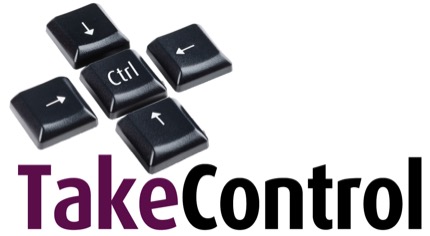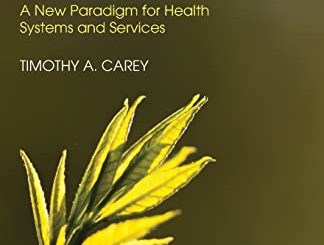Psychological Distress

When people find themselves struggling, or distressed, or having to exert a great deal of effort to ‘force’ themselves to do simple tasks, control has been disrupted. It is the loss of control not control, therefore, that is the problem when people are psychologically distressed. The main psychological way that control is prevented is through internal conflict according to PCT. Warren Mansell provides an overview of this idea in his 2005 article here.
PCT proposes, therefore, that therapy helps people to restore control (rather than remove it) by resolving conflicts. This is accomplished by helping psychologically distressed people shift their attention away from the symptomatic distress to higher level goals and purposes.
Klaus Grawe, one of the most significant figures in integrative psychotherapy to emerge in recent times, has championed the importance of PCT in his book “Psychological Therapy”. He recognises – “Powers was able to adopt a new perspective on mental functioning… considered one of today’s leading research trends.”
There are many interesting developments in treating mental health problems influenced by PCT, such as exposure therapy, rumination-focused CBT, mindfulness meditation, crisis intervention, and self-help.
It is also important for PCT to explain how emotions work and function in the context of well-being. Powers has written several works on this, including a chapter in the 2005 edition of his 1973 book, a 2007 online article, and a recent summary and diagram.
PCT has also been used to understand the process of interaction between two individuals, in terms of the match or mismatch between their multiple levels of goals. Examples include the therapeutic relationship (Carey et al., 2012) and the resolution of arguments (Randall, 2013).
Warren Mansell makes the case for the links between Darwin’s approach to evolution and the approach of PCT to psychology in a recent talk:https://www.youtube.com/embed/vQ3lY1U60MM
Dementia
A recent innovation has been to use PCT to inform a new way of talking to people with dementia – Empowered Communications. The video link below explains how this method is being pioneered by Dr Phil McEvoy and colleagues at Six Degree Social Enterprise in Salford, UK. A recent journal article on coping with dementia based on PCT has been published.
https://www.youtube.com/embed/tQeHGHAyV1k
The Take Control Course
Six Degree Social Enterprise are also working with Dr Lydia Morris and Dr Warren Mansell to develop and evaluate a new transdiagnostic group intervention based on PCT, known as the Take Control Course. It is currently being evaluated in a controlled trial supported by CASE ESRC award. See recently published articles on the course rationale, and a cohort trial.

The therapy developed from PCT that works in this way is called Method of Levels (MOL). It began is a simple questioning technique that Bill Powers developed to explore his own thoughts and to introspect as to the levels of percepion in PCT. This video of Bill reveals the origins in more detail:
In MOL, the therapist locates and identifies relevant background thoughts and brings them to the foreground for closer inspection. As they are being inspected, background thoughts to these thoughts are sought and so on. By constantly focussing on higher level cognitions the attitudes, beliefs, or values that are generating the conflict will be located. When this occurs new perspectives become possible through reorganization – the trial-and-error process whereby the properties of the control system are altered until error is reduced (see What is PCT?).
This online video provides a simple explanation of why PCT and mental health are connected:
There are a whole range of papers on MOL, and two key books written by Tim Carey: “Method of Levels” and “Hold that Thought!”. A third book on Method of Levels as a transdiagnostic cognitive therapy is now available. Many of Tim’s articles on MOL are published in counseling journals, whereas others have been published in journals on Cognitive Behavioural Therapy (CBT). In particular, there is a special issue of the journal, the Cognitive Behaviour Therapist just published online devoted to the application of PCT to CBT.
See Tim Carey’s website for more details on Method of Levels.
The empirical evidence for MOL is emerging, alongside a range of evidence from basic science that going ‘up levels’ of thinking helps to solve problems and improve well-being (e.g. Kross & Ayduk, 2011).
One of the key ways to test PCT in the mental health arena is to build computer models. Here is an example of modelling delusional processes by Tristan Browne. At the University of Manchester we are developing a PCT simulator that allows control hierarchies to be built by anyone, and the process of reorganisation tested systematically.
Could PCT and MOL be the approaches that begin to truly align counsellors, psychotherapists and CBT therapists to deliver effective therapy? Read this article to see…

Method of Levels is currently being evaluated in first episode psychosis in an NIHR-funded pilot trial – Next Level.
MYLO
MYLO stands for Manage Your Life Online, and it is an interactive artificially intelligent computer therapist that you can talk to via text. A pilot study of MYLO has been published and it is currently being evaluated at Universities of Sheffield and Manchester.
Mindsurf
Most recently, an App based on Method of Levels has been released. Click here to download the app, and here to view a study recently published in BMC Psychiatry.

Phenomenological Studies
Several papers have utilised phenenological methodologies to explore mental health problems from a PCt perspective. These include Higginson and Mansell (2008), Gianakis & Carey (2011), and most recently a study of autism by Brown & Carey (2012). For some further insights into autism based on PCT, see Martin Taylor’s 1993 talk.
Note: this page was drafted a few years ago on http://pctweb.org/: information needs to be updated. Volunteers welcome.



